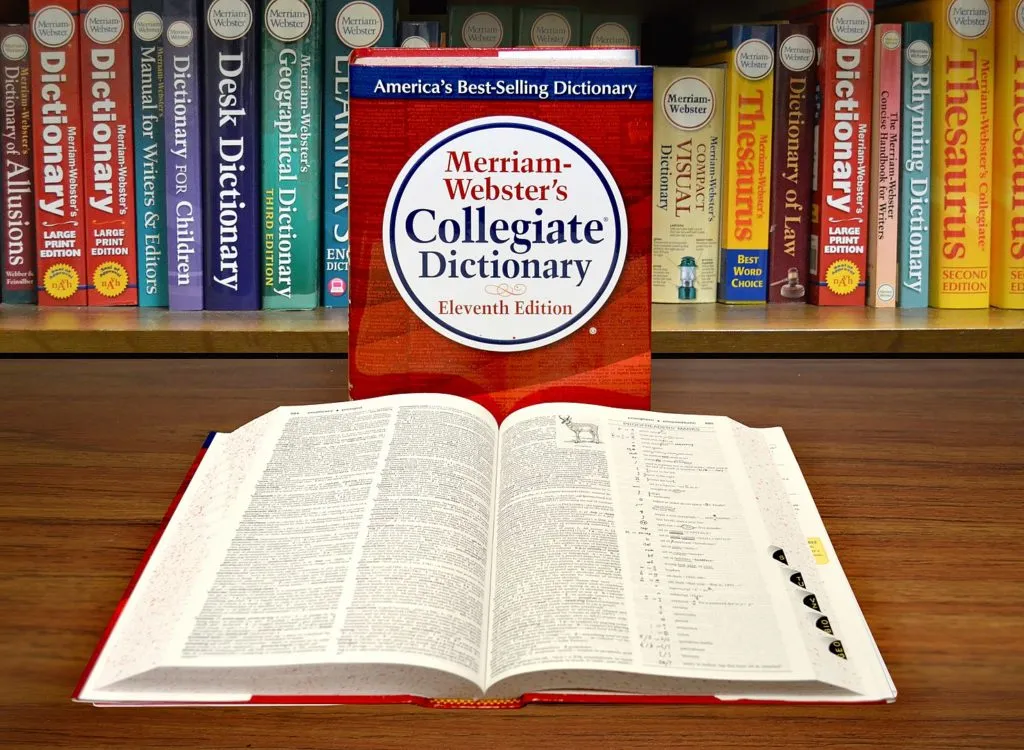Ben Shapiro just got publicly owned by the Merriam-Webster dictionary

Merriam-Webster hit back at criticism of the new definition
The Merriam-Webster dictionary has hit back at critics like Ben Shapiro who are upset about the recognition of the pronoun ‘they’ for non-binary people.
The influential American English dictionary followed in the footsteps of the Oxford English Dictionary and Dictionary.com this week by adding a new definition of “they” to reflect its use by non-binary people.
The decision naturally sparked a backlash from anti-trans voices including right-wing mouthpiece Ben Shapiro.
Shapiro hit out at “wokescolds” destroying language, incorrectly suggesting that it was a “made-up definition of a word that has never been used this way in all of human history”.
Ben Shapiro says the "wokescolds" are destroying language, falsely claiming the singular 'they' is a "made-up definition of a word that has never been used this way in all of human history" pic.twitter.com/9I3OwMTP2k
— Jason Campbell (@JasonSCampbell) September 18, 2019
In response to critics like Ben Shapiro, Merriam-Webster highlighted 600 years’ worth of records showing the use of “they” as a singular gender-neutral pronoun.
Merriam-Webster: Gender-neutral ‘they’ has been used for 600 years.
In a blog post published on Thursday, September 19, the dictionary said: “All new words and meanings that we enter in our dictionaries meet three criteria: meaningful use, sustained use, and widespread use.
“Non-binary they has a clear meaning; it’s found in published text, in transcripts, and in general discourse; and its use has been steadily growing over the past decades.
“English speakers are encountering non-binary they in social media profiles and in the pronoun stickers applied to conference badges.
“There’s no doubt that it is an established member of the English language, which means that it belongs in Merriam-Webster’s dictionaries.”

Merriam-Webster’s Collegiate Dictionary, Eleventh Edition. (Creative Commons photo/Noah1806)
The blog post notes that the word’s use for non-binary people is valid even if it “makes the grammatically conservative uncomfortable”.
It added: “The language’s lack of an exclusive gender-neutral pronoun is a famous deficit, and they has been quite ably filling in for more than 600 years.
“Its use largely goes unnoticed in such constructions as ‘No one has to use it if they don’t want to’ – a use that has long been covered in our dictionaries – and it’s quite possible that the non-binary they is headed for a similarly unremarkable fate.”
Gender-neutral pronouns are nothing new.
In a previous post, Merriam-Webster said: “There have always been people who didn’t conform to an expected gender expression, or who seemed to be neither male nor female. But we’ve struggled to find the right language to describe these people – and in particular, the right pronouns.
“In the 17th century, English laws concerning inheritance sometimes referred to people who didn’t fit a gender binary using the pronoun it, which, while dehumanising, was conceived of as being the most grammatically fit answer to gendered pronouns around then.
“Adopting the already-singular they is vastly preferable. It’s not quite as newfangled as it seems: we have evidence in our files of the non-binary they dating back to 1950, and it’s likely that there are earlier uses of the non-binary pronoun they out there.”

